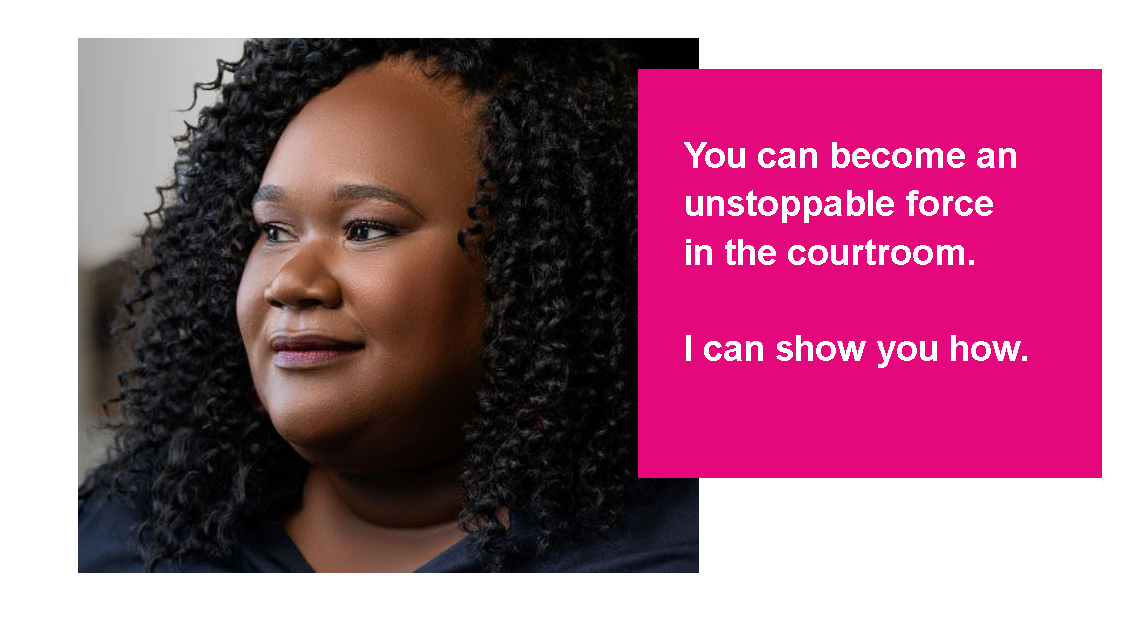


Why Is Mentorship So Important in Law?
Are you a young lawyer or student facing challenges in the legal profession? Learn about mentorship, why mentorship is so important in law, and its benefits.
Building a career in law can be a challenging process. From law school to the practice of law, the road is fraught with difficulties. Worse still, the academic setting doesn’t prepare you for active practice. Unfortunately, law students of color, lawyers of color, and women attorneys often have this challenge worse.
Legal talent alone isn’t sufficient for developing a successful law career. This means that entrants into the legal space must seek ways to improve themselves. Fortunately, professional mentors can help younger lawyers achieve career success. A typical example would be the Sara Williams mentoring program. So, if you’re facing challenges kick-starting your legal career, you may want to contact Sara Williams for a mentoring relationship.

Why Is Mentorship Important in Law?
Mentorship refers to the process of providing younger or less experienced persons with help and advice. This arrangement can run for a significant length of time too. For example, for legal mentorship opportunities, the beneficiary gets legal advice and support.
Notably, too, the one providing this service is called the mentor. Conversely, the beneficiary is the mentee. Senior attorneys usually play the role of mentors. Furthermore, a direct supervisor at work could become your mentor if you ask them.
As we already stated above, the legal profession is a challenging one. Therefore, mentorship is a valuable opportunity for helping younger lawyers cope with the profession’s challenges. Below are some of the crucial benefits of legal mentorship.
Choosing a Career Path
Young legal professionals are often in a dilemma upon graduation from law school. The issue is that the legal field is so vast that choosing a practice area is difficult. Furthermore, such a person may want to further their studies. However, they may not know where to specialize for their LL.M. If they had a mentor in law school, things would be different.
Building Confidence
The legal profession also thrives on boldness. However, a lawyer who knows their worth still needs significant confidence to succeed. This is crucial if they’ll convince clients to pay for their services. Sadly, a young lawyer may succumb to timidity when faced with the demands of the profession. However, a mentorship program can fix this defeatist mindset.
Personal Development
Professional development isn’t all there is to legal mentorship. Instead, younger lawyers and law students also need personal improvement. This would include developing better skills, especially in the communication and critical thinking. Furthermore, mentors can help you create a work-life balance.
Where Can I Find a Legal Mentor?
Picking an excellent legal mentor is the first step to enjoying the benefits of mentorship opportunities. Notably, your level in the legal profession often determines where you find a legal mentor. This is primarily because your needs at each stage are different.
Mentors for Law Students
Law students primarily need to pass their law exams and possibly draft a career plan. Therefore, your potential mentors are most likely within the law school. So, you can check out:
- Student Clubs: These clubs often organize around peculiar interests. Furthermore, they sometimes invite outside speakers who could become mentors.
- Internships: Internships allow you experience the practical aspect of the legal profession as a student. Your employers there could also become your mentor.
- Law School Faculty: American law schools have excellent and successful staff. These professors and faculty members can mentor any student properly.
Mentors for Legal Professionals
Qualified lawyers have more needs, and they also have multiple sources of legal mentors. They include:
- Bar Associations: Your local bar association is filled with many successful senior lawyers. One of them could become your mentor.
- Professional Associations: Legal professional associations can also offer mentoring opportunities. Some even have internal programs for mentees.
- Networking Events: Every lawyer can benefit from networking. However, beyond expanding your professional network, one such event can land you an excellent mentor.
- Your Law Firm: If your firm didn’t have persons who qualify as potential mentors, you most likely wouldn’t take the job. The firm may even have formal programs for mentoring younger staff.
- Social Media Platforms: Social media has gone beyond satisfying social needs. So, now, you can use this tool to search for mentors. Professional social media platforms like LinkedIn can be helpful here.
How To Choose a Legal Mentor
Choosing a legal mentor shouldn’t be done carelessly. Instead, much thought and attention should go into your selection. The following tips can help you make an excellent decision.
Willingness
You cannot force someone into a mentorship relationship. Instead, it’ll be best to seek out someone who’s interested in mentoring the younger generation. Gauging this willingness is pretty straightforward too. For example, you can directly ask potential mentors. Conversely, a person’s life philosophy can show whether they’ll be open to mentoring you.
Values
A mentee should also share values with their mentor. Values here would include character traits and life perspectives. Both of you should have similar objectives. For example, you may share identical career objectives. This doesn’t mean that there wouldn’t be any differences. Such differences can exist to offer fresh perspectives. In addition, a mentor must be successful in their chosen field.
Communication
Lawyers have a responsibility to maintain communication with their clients. But, there’s no such obligation with mentees. Therefore, communication with a mentor would be a voluntary action often founded on sacrifice. But, unfortunately, not all successful persons can communicate their feelings and experience for the benefit of others. So, if you find a successful lawyer who’s willing to talk things over with you, it’ll be best to hold on to them.
What Do I Talk About During Mentoring?
Now, suppose you’ve found the right fit for your mentorship needs. You must then meet this person to propose a mentorship relationship. First, however, meeting a potential mentor means you must have discussions. The thought of holding conversations with a successful senior lawyer can be scary for some juniors. However, it ought not to be so. You can have a fruitful discussion discussing topics both of you are passionate about and what you hope to gain from the mentor-mentee relationship.

Why Do You Need a Mentor?
Indeed, there are several benefits of having legal mentors. However, most people have specific reasons. Your reasons for desiring a legal mentorship can thus form the basis of your discussions. As your relationship progresses, you can discuss:
- Career topics
- Leadership topics
- Discussions on career goals
- Situational advice discussions
- Feedback topics
- Skill related topics
It’s also noteworthy that it’ll be best to approach potential mentors boldly. Many of them understand the challenges of the profession. So, such seniors are often willing to help out upcoming lawyers. While discussing, try not to ask dumb questions. You’re looking for a mentor and not a law school teacher. It’ll also be best not to stray from the topic of mentorship. A mentorship discussion isn’t an opportunity to burden someone with your general life difficulties.
Sara Williams Wants To Mentor You!
Now, you must have learned the importance of strong mentoring relationships. So, it’s time to exploit the information you have and reap huge benefits. Are you a young legal professional? Are you unsure of the trajectory of your career path? Then, what you need is an excellent legal mentor.
Of all the potential mentors available, Sara Williams is an excellent choice because of her many years of legal practice. Furthermore, she’s willing and desirous of helping several young lawyers become the best they can be in this field. Law students can even benefit from her extensive resource of mentorship materials. So, it’ll be best to contact Sara Williams today for a mentorship relationship.
Over $30 million dollars
in verdicts and settlements recovered for my clients
in Total Settlements in 2020
in Referral Fees in 2020
Birmingham Business Journal Women to Watch
Alabama Super Lawyers Rising Stars
in verdicts and settlements recovered for my clients
in Total Settlements in 2020
in Referral Fees in 2020
Birmingham Business Journal Women to Watch
Alabama Super Lawyers Rising Stars

